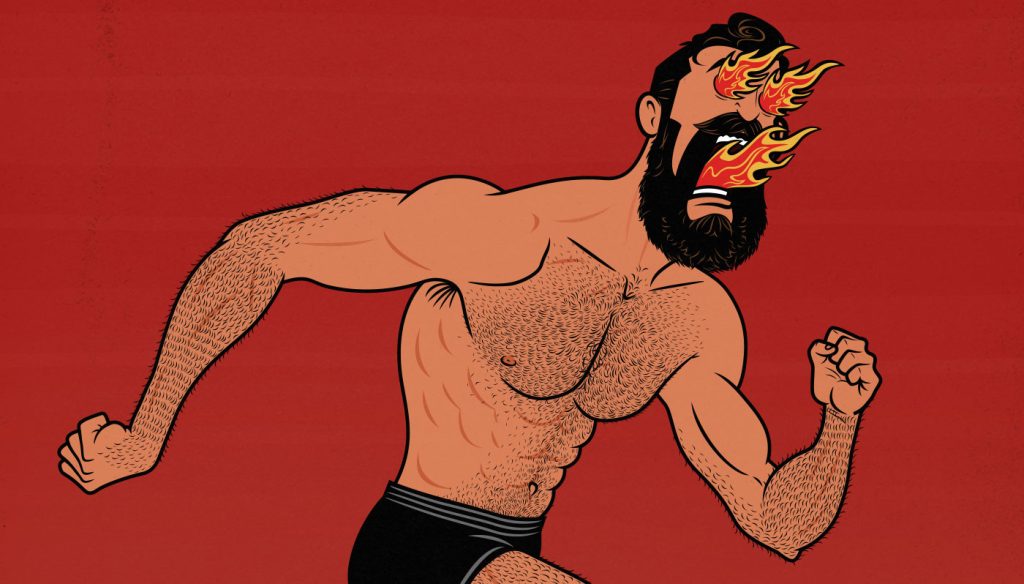
Does a Calorie Surplus Help With Cardio?
You need an abundance of energy to build muscle. You use that energy to convert protein into muscle mass. You can get that energy by eating more food or by burning body fat (if you have an abundance of body fat).
It’s less clear whether you need extra calories to make cardiorespiratory adaptations. Will eating in a calorie surplus help you construct more blood vessels, gain new mitochondria, carry more oxygen in your blood, and build a bigger left ventricular wall in your heart?
Let’s dive into it.
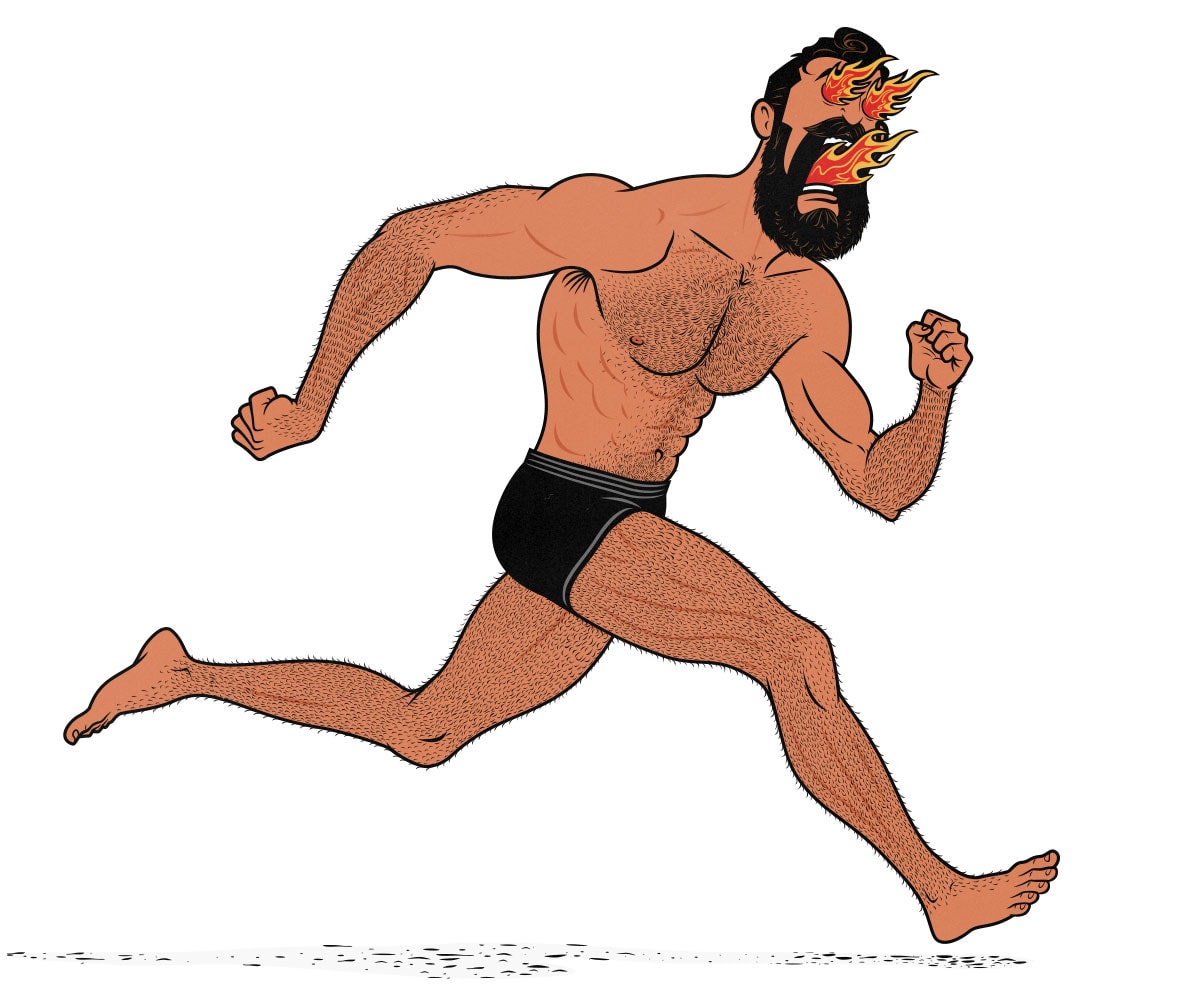
Do Cardiovascular Adaptations Require a Calorie Surplus?
When you lift weights, you stimulate muscle growth, but your body will only build bigger muscles if you eat enough energy (calories) and building materials (protein). That means if you don’t eat enough, you won’t fully adapt to the stimulus of lifting weights. More on that in this article.
When you do cardio, you stimulate cardiorespiratory adaptations. It could be that a calorie surplus gives you more energy to invest in building blood vessels and a bigger heart, but there are also several reasons to suspect that it might not be as much of a limiting factor:
- Building bigger muscles is an ongoing investment. Muscles don’t just take energy to build; they also take energy to maintain and use. A pound of muscle burns around 6 extra calories per day. That means if you gain 20 pounds of muscle, you’ll burn around 120 more calories every day. If calories are already in short supply, it’s a bad investment. Muscles are for the calorically wealthy.
- Building a bigger cardiovascular system isn’t much of an ongoing investment. A stronger heart pumps blood more efficiently, slowing your resting heart rate and thus slowing metabolism (study). Blood vessels don’t require much upkeep, either. And none of these adaptations are heavy, meaning they don’t cost energy to lug around.
- Hearts are relatively small. The left ventricular wall of an athlete’s heart is around 48% bigger than the average person’s, making it about 0.1 pounds heavier (study). It doesn’t take many calories to build or maintain an extra 0.1 pounds of muscle mass.
- Most cardio studies don’t even bother putting the participants on a bulking diet. The participants still see great gains in fitness.
Is There Any Research On Calories & Cardio?
I couldn’t find any studies where researchers put people on a cardio routine, manipulated their calorie intake, and measured how it affected their results. I also couldn’t find any experts talking about it. So I asked one.
I reached out to Dr. Eric Trexler, an exercise scientist with a Ph.D. in nutrition. He reviews strength and hypertrophy research for Monthly Applications in Strength Sport (MASS). Most recently, he reviewed a study covering how our hearts adapt to cardiovascular exercise and resistance training. I asked him if calorie intake affects cardiovascular adaptations. He told me:
- Heart vascularization and maintenance of myocardial contractility are pretty high on the biological priority list, so I suspect those processes are pretty robust against modest changes in energy availability. I doubt that a calorie surplus would meaningfully move the needle.
- I doubt that an advisable (i.e. not egregiously extreme) calorie deficit would hinder cardiac adaptations, but that’s just a hunch. I’m not aware of research on the topic. It could be out there, but I haven’t seen it.
Summary
It’s hard to say for sure how calorie intake affects cardiovascular adaptations. As far as I know, there aren’t any studies specifically looking into it. It’s unlikely you need much of a calorie surplus to maximize your results. It’s unclear if you can make ideal cardio adaptations while eating in a calorie deficit.
Many studies show great (but perhaps not ideal) cardiovascular adaptations when people are slowly losing weight. As long as you’re bulking or cutting at a healthy pace, you probably don’t need to worry about how it will affect your cardiovascular adaptations.
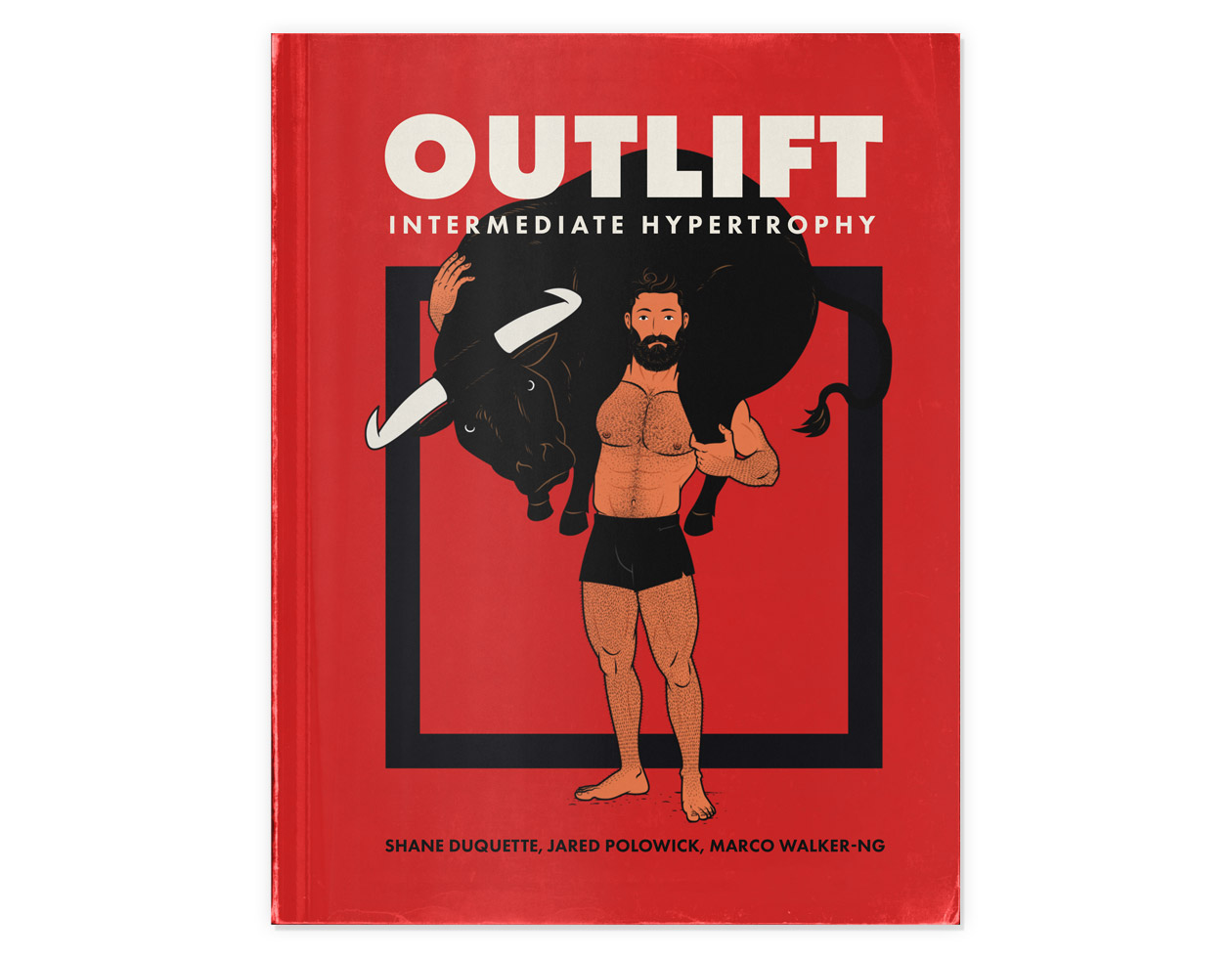
Alright, that’s it for now. If you want more muscle-building information, we have a free muscle-building newsletter. If you want a full exercise, diet, and lifestyle program to help you build muscle and improve your cardiovascular health, check out our Bony to Beastly (men’s) program or our Bony to Bombshell (women’s) program. Or, if you’re already an intermediate lifter, check out our customizable Outlift Intermediate Hypertrophy Program.


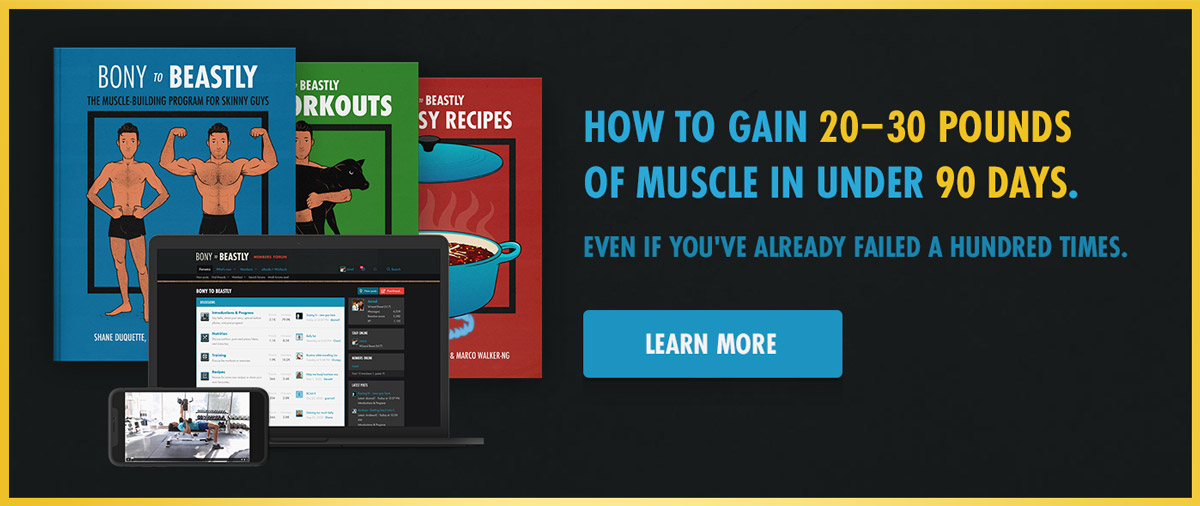

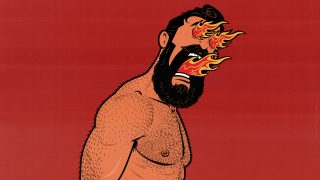
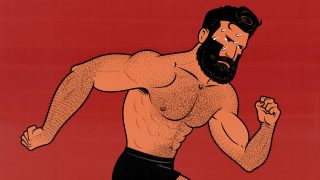
This is exactly the information that I was looking for. There is a dearth of information on this topic online. Thank you for addressing it. I have started working my way up to 30-minute runs three times a week and I am loving it. I am currently in a calorie deficit, so I was wondering what kind of effect that would have on my cardiovascular adaptations.
I’m looking forward to starting my next bulk (very soon with War Chest!) and seeing how that affects my performance. Even if it slightly interferes with my muscle building, I am really enjoying my new cardiovascular journey. Just to be safe, I’m running on seperate days than I lift. Moreover, running has really helped break up the monotony of just trying to maintain muscle during this cut.
Thanks again for cranking out these articles. I love reading fitness articles, but there are so few sources that I trust.
Sounds like we’re on a similar path. I’ve been getting into running, too, and I’m also loving it. It’s so much more enjoyable than I expected. I look forward to it.
Cardio shouldn’t interfere with bulking as long as you’re getting a few hours of rest between running and lifting. You’re running on separate days, so it shouldn’t be an issue at all. That is, unless running is tiring you out, leaving less energy for lifting. I’m feeling a bit of that.
Let me know how it goes! And good luck with War Chest!
(I’ll fix your typo, as requested.)
Thank you! My cardio journey is going great!! The biggest thing that I discovered is the value of deloading. After my first deload week from running, I was shocked with the improvement to my performance. What before had me gasping for breath, was easy. This has been fun.
Now for my request. I’m about to start War Chest. After those 18 weeks, I’m going to do a short cut, and then head straight into Call to Arms. After that, my upper body should be right where I want it to be. Now that I am running regularly, I am more and more interested in bulking up my legs.
Do you have any plans to create a leg specialization program? I am hoping that, now you are also running, you might have considered this. If not, then I’ve already started tinkering with the Outlift program to make it more leg heavy, but since I am not yet an expert at programming, I’d love to just pay $50 or so for a ready-to-go program.
Thanks for your consideration. And I will never be able to thank you enough for being a key player in, quite literally, transforming my life. Your website taught me how to stop spinning my wheels in the gym. As a skinny person, I had been mislead by all the training advice I had gotten prior to finding you guys. Now, almost three years later, I am bigger, stronger, healthier, and happier. Cheers!
Awesome 🙂
We’ve been thinking about developing a bulking program for improving athletic performance that has a heavier emphasis on legs. That’s one of Marco’s specialties. I don’t know when it will be ready, but we’re working on it.
So happy to help, man. Congratulations on your progress!